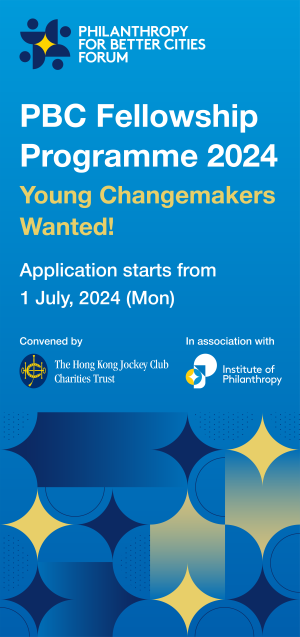The title of this article is a direct quotation from Hanna Surmatz, Head of Policy at Philea, who warned about the consequences of the June 2024 EU elections:
‘The anti-democratic and anti-EU forces are gaining influence and this creates risks to our European core values such as democracy, rule of law, and fundamental rights and with that also to civil society and philanthropy space. This has to be a wake-up call.’
Around the same time, Timothy Garton Ash, professor of European Studies at the University of Oxford, asked: ‘Will Europe wake up before it is too late?’
While the recent EU elections show significant gains for the far right, this is not new since political extremism has been growing for many years. What is new, however, is that we are now at a tipping point. Five years ago, the problem of ‘closing space for civil society’ was concentrated in particular countries, but is now a global problem that transcends borders with ‘Europe becoming a crucible for a new age of right-wing politics in the West.’ In this year alone, we have seen authoritarian leaders increase their control of civil society in Georgia and in Slovakia.
The Unites States may be next. Project 2025 has been produced by the Heritage Foundation, a right-wing American think tank, to prepare for the election of the next Republican president in November 2024. A comprehensive blueprint for reform of America proposes that:
‘The next conservative President must make the institutions of American civil society hard targets for woke culture warriors. This starts with deleting the terms sexual orientation and gender identity (“SOGI”), diversity, equity, and inclusion(“DEI”), gender, gender equality, gender equity, gender awareness, gender-sensitive, abortion, reproductive health, reproductive rights, and any other term used to deprive Americans of their First Amendment rights out of every federal rule, agency regulation, contract, grant, regulation, and piece of legislation that exists.’ (p.4-5)
Laura Thornton, senior vice president for democracy at the German Marshall Fund, has examined the consequences for international development:
‘Works of the U.S. Agency for International Development (USAID) would be dramatically curtailed due the Heritage Foundation’s distaste for what it calls the agency’s “divisive political and cultural agenda that promotes abortion, climate extremism, gender radicalism, and interventions against perceived systemic racism.”
‘The word “gender” would be systematically purged from all USAID programs and documents. Project 2025 indicates specific United Nations agencies to be defunded and suggests the President be given more power to allocate U.S. foreign aid. Such aid will not be allocated for helping poorer countries address the impact of climate change; rather, it will be devoted to advancing the interests of fossil fuel companies.’
The infrastructure for this right-wing takeover has been built by philanthropy – something we have known for 30 years. In 1997, Sally Covington produced: Moving a public policy agenda: The strategic philanthropy of conservative foundations. She points out:
‘First, nearly half the total money was given as general support — as distinct from specific project support — which allowed the grantees both respite from fundraising and the luxury of deciding how to spend the money. Second, grants were focused on building institutions, not programs, with funders remaining faithful to their grantees year after year, sometimes for decades at a time.’
At the time of this publication, there was discussion about how progressive funders might follow this model, but little has changed as a result. Two decades later, an article by Vu noted:
‘Conservative funders fund faster, with more focus, with more money as general operating funds, with investment in infrastructure and institutions instead of just projects and single-issues, over longer periods of time, and view grantees as partners, not as freeloaders.’
Turning to progressive funders, in 2019, Barry Gaberman, Merrill Sovner, and William Moody produced Lessons from Five Pooled Funds in Eastern Europe. This was a study of the long-term effects of funding civil society following the collapse of the Berlin Wall. They found the factors that worked well for progressive funders were the same as those that worked for conservative funders:
‘Counter to conventional grantmaking wisdom, providing grantees with core operational support, funding assets such as real estate purchases and endowments, and supporting individuals through study tours and fellowships have proven to be smart investments over the long term.’
What is significant in the above quotation is the phrase ‘counter to conventional grantmaking wisdom’. The conventional approach for progressive funders is to support short-term project-based remedial action on a single issue for some needy or marginalised group measured by a log-frame designed to detect quick results.
However, as Barry Gaberman and colleagues show, this approach produces little sustainable change. Seeking such sustainability leads funders to the second feature of the conventional approach – the search for magic bullet solutions. Because such solutions do not exist when it comes to changing systems, this drives fads and fashions in philanthropy in which catchy phrases such as ‘the associational revolution’ or new terms like ‘philanthrocapitalism’ become buzzwords on everyone’s lips for a time but then fade into oblivion as disappointment sets in.
There have been at least four such fashions in the past 25 years. None has succeeded in supporting a shared long-term vision of the kind of society that people want, and it remains to be seen if they’ve nurtured enough strength in the sector to resist and repel attacks on hard-won rights. As campaigners know only too well, anti-LGBTQI+ rhetoric, for example, is increasingly part of the right-wing strategy to increase power and influence.
Findings from our latest consultations on Reforming International Development suggest that the progressive philanthropy and civil society sector has little capacity or popular support to address the threats emerging from the far right. Here are a selection of comments we have heard:
‘There is a failure of imagination and of strategies of progressives – we are losing ground rapidly because we are not joined up, organizing, able to work together and because funding is still not conducive to the kind of strategic and tactical organizing needed.’
‘Philanthropy still operates as if we are at the end of history when it seemed that the rise of democracy was the only game in town, economic development would deliver ever growing prosperity, and citizens would play active roles in bringing about a good society.’
‘Right now, there is too little trust, reactions are too slow and disjointed and there is no long-term plan. Logo, silo and ego come before systemic change. This has to change. We believe it’s important for us to come together to talk all this through in a safe, inclusive, but challenging space, sharing thinking and most importantly learning and understanding.’
‘There is so much talk about systemic change, but so little action to bring it about.’
Against the backdrop of an international development system that is visibly falling apart, with once progressive countries such as Sweden and the Netherlands signalling a rightwards shift, and a UN system yet again paralysed by the Security Council’s veto-wielding permanent members, we will share ideas over the coming months about how we can weave together threads of change and create a tapestry which shows our common narrative and direction of travel. In this, we will draw inspiration from #ShiftThePower which has been able to fuse parts of an ecosystem still dominated by ego, logo, silo and halo.
First, however, we need to wake up.
Barry Knight is Secretary to the Trustees of Centris, Adviser to the Global Fund for Community Foundations, and a Member of the Management Team of Philanthropy for Social Justice and Peace





Comments (0)